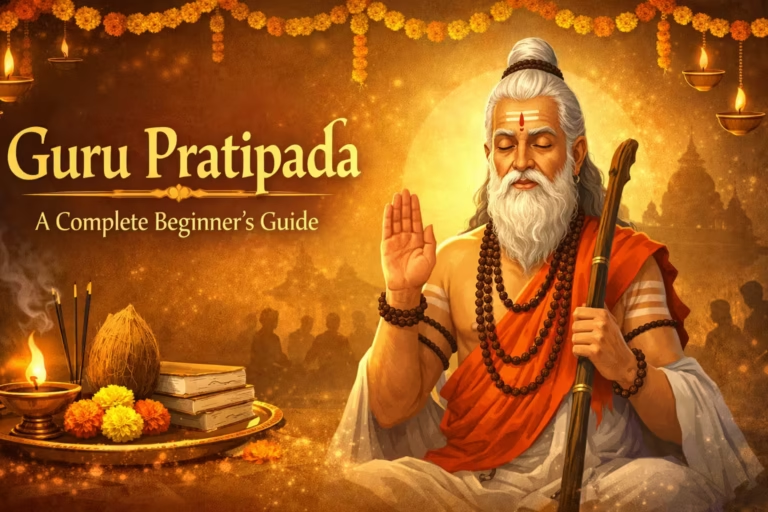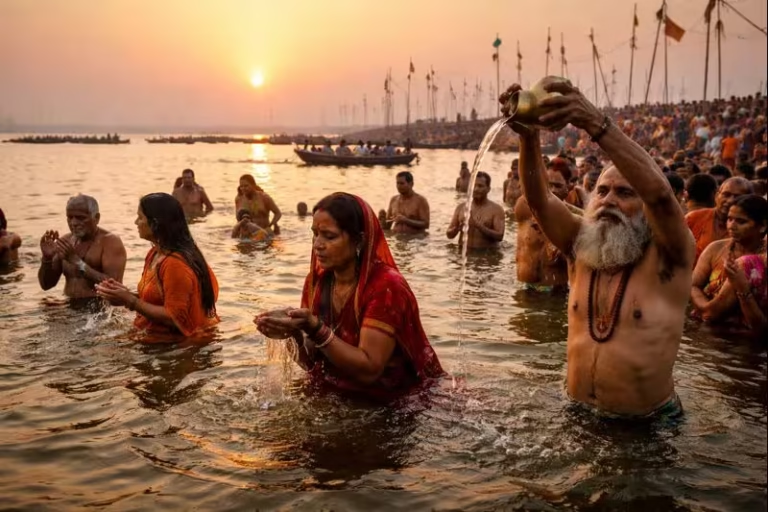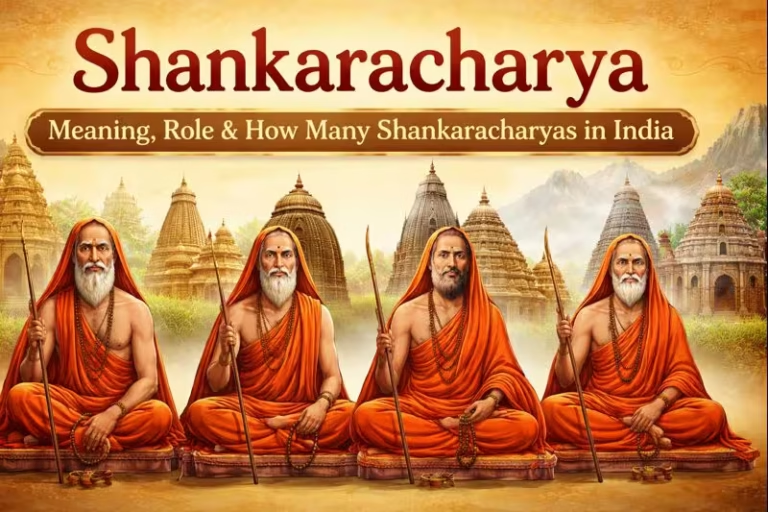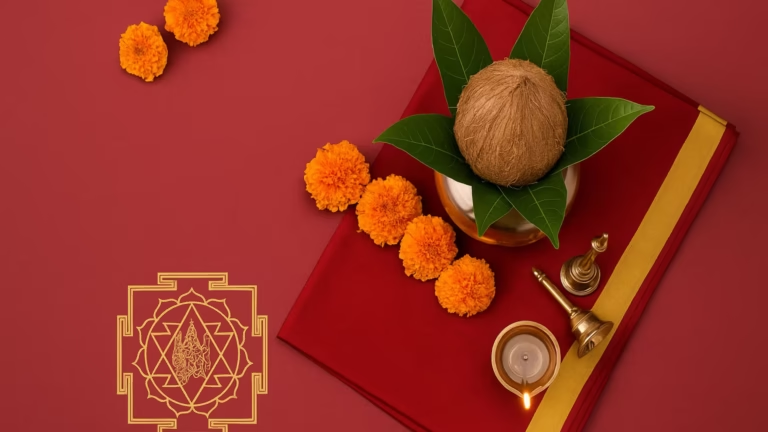Lord Shiva is one of the principal deities in Hinduism, revered as ‘Mahadev’—the great god. He is known as the destroyer in the holy trinity (Trimurti), the patron of ascetics, and the embodiment of compassion. His 108 names reflect his diverse forms, divine attributes, and spiritual powers. In this article, we explore the meanings, spiritual significance, and practical use of these 108 names in daily worship and meditation.
Table of Contents
Why are 108 names important?
In Hinduism, the number 108 holds sacred significance. A Japa mala (prayer bead) typically has 108 beads, used to chant mantras or names. Reciting the 108 names of Lord Shiva not only deepens devotion but also brings peace, strength, and spiritual progress.
Read Also: How to Perform Shravan Somvar Puja? Complete Guide, Rituals, and Significance
List of 108 Names of Lord Shiva (with Brief Meanings):
- Shiva – The auspicious one who brings welfare.
- Maheshwara – The great lord; master of dissolution.
- Shambhu – The giver of joy and bliss.
- Pinakapani – The one who wields the Pinaka bow.
- Shashishekhara – He who wears the moon on his head.
- Vamadeva – The gentle and graceful form.
- Virupaksha – The one with unique, divine eyes (three-eyed).
- Kapardi – The matted-haired ascetic.
- Neelalohita – The one with a blue and red-hued form.
- Shankara – The one who does good to all.
- Shulapani – The bearer of the trident (Trishul).
- Khatvangi – The one who holds a club (staff of ascetics).
- Vishnuvallabha – Beloved of Lord Vishnu.
- Gangadhara – The one who bears the Ganga on his head.
- Andhakasurasudana – Slayer of the demon Andhaka.
- Virupaksha – He who sees all through his third eye.
- Kapali – The one who wears a skull.
- Tryambaka – The three-eyed deity.
- Tripurantaka – Destroyer of the three cities (Tripura).
- Mrityunjaya – The conqueror of death.
- Sukshmatanu – The one with a subtle, invisible form.
- Jagadvyapi – Pervader of the entire universe.
- Jagadguru – Teacher of the world.
- Vyomakesha – The one with sky-like (limitless) hair.
- Mahadeva – The lord of all gods.
- Bhaktavatsala – Compassionate to devotees.
- Umapati – Consort of Goddess Uma (Parvati).
- Arghyapriya – Pleased by offerings of water.
- Krittivasa – The one who wears elephant skin.
- Puraratih – Destroyer of cities (evils).
- Bhava – The source of creation and existence.
- Sharva – The destroyer form.
- Trilokeshwara – Lord of the three worlds.
- Ajneya – The unknowable one.
- Trilochana – The one with three eyes.
- Ishana – The ruler of the northeast direction.
- Phalakesha – The one with a forehead eye.
- Paratpara – The supreme among the supreme.
- Sadashiva – The eternally auspicious form.
- Vishweshwara – Lord of the universe.
- Veerabhadra – Fierce warrior form of Shiva.
- Gananatha – Lord of the ganas (attendants).
- Prajapati – Lord of all living beings.
- Hiranyareta – The golden radiant one.
- Durdharsha – The invincible one.
- Gireesha – Lord of the mountains.
- Anoraniyan – Smaller than the smallest.
- Brihadbrihatva – Greater than the greatest.
- Janma-mrityu-jaratita – Beyond birth, death, and decay.
- Sarvajna – All-knowing.
- Sarvatomukha – Facing all directions.
- Antaryami – Dweller in the inner self.
- Lalataksha – With an eye on the forehead.
- Kalakala – The death of time itself.
- Kala – Time personified.
- Mahakala – Supreme over time.
- Mrityunjaya – One who conquers death.
- Sukshma – Subtle and invisible.
- Vishwarupa – The universal form.
- Vrishanka – Marked by the bull.
- Vrishabharudha – Riding on the bull (Nandi).
- Bhootapati – Lord of all beings.
- Bhootanatha – Master of all spirits.
- Ardhanarishwara – Half-male, half-female form.
- Chandrashekhara – Moon-crested Lord.
- Chandramouli – One who wears the moon.
- Chandra – Cool, serene presence.
- Suresha – Lord of the gods.
- Jagatswami – Master of the world.
- Lokesha – Lord of all realms.
- Trinetra – The three-eyed one.
- Trinetradhari – Bearer of the third eye.
- Trishuladhari – Wielder of the trident.
- Tripurari – Destroyer of the demon Tripura.
- Bhavanipati – Lord of Goddess Bhavani.
- Bhavapriya – Beloved of Bhavani.
- Mahashaktiman – All-powerful.
- Omkaara – Embodiment of the Om sound.
- Aghora – The fearless and gentle form.
- Ghoraroopa – The terrifying form.
- Achintya – Incomprehensible.
- Avyakta – Unmanifested.
- Ajnanarupa – Remover of ignorance.
- Aja – Unborn.
- Ishwara – Supreme controller.
- Atmarupa – Form of the soul.
- Atmavidya – Giver of self-knowledge.
- Mokshadayaka – Bestower of liberation.
- Dharmarakshaka – Protector of righteousness.
- Yogi – The ultimate ascetic.
- Yogeeshwara – Lord of yoga.
- Yogaguru – Teacher of yoga.
- Yogapriya – Lover of yogic discipline.
- Yogadhari – One who embodies yoga.
- Dhyanapriya – Lover of meditation.
- Tapasvi – The one engaged in penance.
- Tapaswarupa – Embodiment of austerity.
- Bhairava – The fierce, protective form.
- Rudra – One who cries out; fierce form.
- Agninetra – Eyes filled with fire.
- Agniputra – As radiant as fire.
- Agniswarupa – Of fiery form.
- Panchavaktra – Five-faced form.
- Panchamukhi – One with five heads.
- Ashtamurti – Manifested in eight forms.
- Dashabhuja – Ten-armed form.
- Dwadasharudra – Twelve Rudra manifestations.
- Anantarupa – Infinite forms.
Use of These Names in Spiritual Practice:
- For Chanting & Meditation: Regular chanting of these names enhances concentration and deepens spiritual connection. They act as mantras in themselves.
- During Festivals & Shivratri: Reciting the 108 names during special occasions like Maha Shivratri pleases the deity and brings special blessings.
- In Daily Worship: Morning or evening recitation purifies the mind and invokes inner peace.
- For Protection & Healing: Names like Neelkanth, Mahakaal, and Tripurantaka are especially invoked for overcoming fear, illness, and obstacles.
Conclusion:
The 108 names of Lord Shiva are not mere words—they are sources of divine energy. Their utterance purifies thought, word, and deed. Every devotee should know, understand, and incorporate these names into daily life to walk the path toward Shiva consciousness.
Whatsapp Channel Link :–https://whatsapp.com/channel/0029VbB0KvuIHphFXKcwyq3B
Click Here To Read In Hindi:
Read Also: Indian Air Force Medical Assistant Recruitment 2025 – Complete Details for Intake 02/2026



